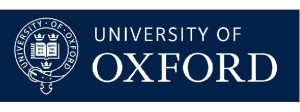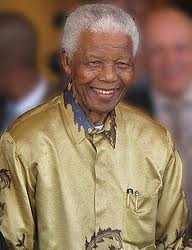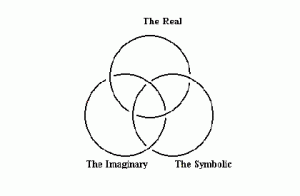Post-Apartheid South Africa And The Crisis Of Expectation – DPRN Four
The collapse of the apartheid state and the ushering in of democratic rule in 1994 represented a new beginning for the new South Africa and the Southern African region. There were widespread expectations and hopes that the elaboration of democratic institutions would also inaugurate policies that would progressively alleviate poverty and inequality.
Fourteen years into the momentous events that saw Nelson Mandela become the president of South Africa, critical questions are being asked about the country’s transition, especially about its performance in meeting the targets laid down in its own macro-economic programmes in terms of poverty and inequality, and the consequences of the fact that the expectations of South Africans have not been met.
At a general level the euphoria of 1994 has come up against deepening inequality, rising unemployment, the HIV pandemic and bourgeoning violent crime. The latter has led one writer to conclude that South Africa is ‘a country at war with itself’ (Altbeker 2007).
South Africans have trusted democracy with the hard task to deliver jobs, wealth, healthcare, better housing and services to the people. But now that all of this is slow in arriving, there is growing disquiet and increased community protests that have sought to challenge the government on the pace of service delivery.
It is the level of what we have labelled a crisis of expectation that this paper speaks to. It looks at what under lies this crisis of expectation and what are the potential consequences. Read more
Het ontrafelen van criminele carrières van hoog-risico jongeren
“Stel je voor dat je wordt geboren in een sociaal achtergesteld gezin. Het opleidingsniveau van je ouders is laag en hun inkomen evenzeer. Daarbij zijn alcoholmisbruik, drugsgebruik en werkeloosheid bekende problemen in jouw familie. Door deze omstandigheden zijn je ouders niet instaat om voldoende te investeren in jouw toekomst. Al sinds de basisschool heb je het gevoel dat je achterloopt. Huiswerk kost veel moeite en je cijfers zijn laag. Op de middelbare school verandert er niet veel. Je cijfers blijven laag en je wordt vaak de les uitgestuurd.
Buiten school gaat het ook niet echt goed. Naar mate je pubertijd vordert maak je steeds meer ruzie met je ouders en hang je voornamelijk rond op straat. Op gegeven moment ga je te ver en word je gearresteerd door de politie. Geen probleem denk je in eerste instantie. Veel van je vrienden zijn ook een keer gearresteerd en je hebt niet het idee dat dit grote gevolgen zal hebben. In de maanden die volgen word je nog een paar keer gearresteerd en uiteindelijk besluit de kinderrechter dat je naar een besloten jeugdinstelling moet. Hier aangekomen tref je andere jongeren aan die vergelijkbare problemen hebben. Tijdens je verblijf in de jeugdinstelling worden je gedragsproblemen behandeld en krijg je laaggeschoold onderwijs. Rond je 17de levensjaar loopt je verblijf in de instelling teneinde en loop je de poort uit naar een volwassen leven.”
Introductie
De situatie die hierboven wordt geschetst is karakteristiek voor een kleine groep jongeren in Nederland die al vanaf jonge leeftijd grote problemen kennen op verschillende domeinen. Het doel van dit artikel is om de bevindingen van het proefschrift Disentangling Criminal Careers for Disadvantaged Youths op een toegankelijke manier te beschrijven zonder afbreuk te doen aan de gecompliceerdheid van de conclusies. Het doel van het onderzoek was om een conceptueel en empirisch raamwerk te ontwikkelen om de effecten vast te stellen van een aantal verschillende facetten, voor jongeren met een “achtergestelde jeugd”, op uitkomsten gedurende het volwassen leven. We onderzochten of de cognitieve en sociale vaardigheden, het opleidingsniveau en contact met justitie de volwassen sociaal-economische uitkomsten beïnvloedden. Tegelijkertijd erkenden we dat transities gedurende volwassenheid, zoals transities van en naar werk en intieme relaties, de daaropvolgende volwassen uitkomsten kunnen beïnvloeden. De focus van het proefschrift ligt op het verklaren van de uitkomst “criminaliteit” voor adolescenten en volwassenen, maar verschillende andere sociaal-economische uitkomsten worden ook onderzocht. In het bijzonder onderzoeken we ook arbeidsmarktuitkomsten, uitkeringen, drugsgebruik en intieme relaties.
In totaal worden er ongeveer 4.000 jongeren jaarlijks geïnstitutionaliseerd in een straf- of jeugdzorg instelling in Nederland (CBS, 2013). Op basis van hun vroege contacten met justitie en/of hun gedragsproblemen, kunnen deze jongeren worden beschouwd als behorende tot een kansarme subgroep van jongeren die een hoog risico hebben voor het plegen van criminaliteit, het vaak lastig hebben op de arbeidsmarkt en relatief vaak de ontvangers zijn van sociale uitkeringen (van der Geest, 2011; Mesters, van der Geest en Bijleveld, 2014; Verbruggen, 2014). Tijdens hun verblijf in de instelling worden ze behandeld voor hun gedragsproblemen en krijgen ze laaggeschoold onderwijs aangeboden. In hun late tienerjaren verlaten deze jongeren vertrekken meestal de instelling en en begint hun “volwassen” leven. Gezien hun moeilijke jeugd hebben ze vaak moeite met deze transitie naar volwassenheid (Osgood, Foster, Flanagan en Ruth, 2005). Ons doel is om aan te geven op wat voor soort kenmerken van deze jongeren interventies het beste kunnen aangrijpen om de volwassen sociaal-economische uitkomsten van deze jongeren te verbeteren.
De ontwikkeling van een raamwerk dat in staat is om de sociaal-economische uitkomsten voor volwassenen te verklaren in termen van vroeggemeten factoren en andere uitkomsten gedurende het volwassen leven is een uitdagende taak. In dit proefschrift proberen we deze puzzel stap voor stap te benaderen. Het raamwerk is gebaseerd op inzichten uit de criminologie, sociologie, economie en psychologie. De theorieën die uit deze disciplines naar voren komen vormen het conceptuele raamwerk dat wordt vertaald naar een empirisch model in wiskundige formulering. Deze vertaling maakt het mogelijk om het conceptuele raamwerk te testen met behulp van observationele gegevens en econometrische methoden. Read more
University Of Oxford ~ Podcasts ~ Faculty Of Philosophy
 The John Locke Lectures
The John Locke Lectures
The John Locke Lectures are among the world’s most distinguished lecture series in philosophy. You can listen to Professor John Cooper’s 2011 series entitled ‘Ancient Greek Philosophies as a Way of Life‘, Professor David Chalmers’s 2010 series entitled ‘Constructing the World’, Professor Thomas Scanlon’s 2009 series entitled ‘Being Realistic about Reasons‘, Professor Hartry Field’s 2008 lecture series entitled ‘Logic, Normativity, and Rational Revisability’ and Professor Robert Stalnaker’s 2007 lectures series entitled ‘Our knowledge of the internal world’ here.
Interviews with Philosophers
Podcast interviews with members of the Faculty of Philosophy giving their own insight into Philosophy at Oxford.
Philosophy for Beginners
This series of five introductory lectures, aimed at students new to philosophy, presented by Marianne Talbot, Department for Continuing Education, University of Oxford, will test you on some famous thought experiments and introduce you to some central philosophical issues and to the thoughts of some key philosophers. The first lecture, A Romp Through the History of Philosophy, was global number one on iTunesU.
Critical Reasoning for Beginners
In this six-week course delivered by Marianne Talbot, another global number one and now downloaded over 2 million times, you will learn all about arguments, how to identify and evaluate them, and how not to mistake bad arguments for good.
And more: http://www.philosophy.ox.ac.uk/podcasts
Reconfiguring Apartheid Loss: Reading The Apartheid Archive Through A Lacanian Lens
Abstract.
This paper, the first of two focussed on the topic of libidinal attachments between white children and black domestic workers in narratives contributed to the Apartheid Archive Project (AAP), offers a series of methodological insights derived from a Lacanian type of psychoanalytic reading practice. A Lacanian reading practice is one which emphasizes the importance of symbolic juxtaposition, of recombining different facets of texts, and of attempting to locate what I term the “absent mediator” implied by tacit conjunctions and associations within texts. In this paper I focus particularly on a puzzling aspect shared by a series of contributions to the AAP, namely the role of animals in the narratives of white participants, which appear to emerge precisely when the question of a loving relation for a black person is posed. I argue that this narrative device is an attempt to make sense of a prospective relationship, particularly when such a relationship is effectively prohibited by the prevailing rules of interaction. In response to pressing questions of inter-racial loss and love, and in respect of an ambiguous inter-racial relationship, recourse to an animal provides a fantasmatic “solution”, a model of how to manage a relationship that otherwise difficult to understand.
Keywords: Absent mediators, Apartheid Archive, Lacan, psychoanalysis, racism
Introduction
One of the unintended consequences of apartheid’s massive injustices of social division and inequality was – paradoxically – the production of relations of racial proximity. This pinpoints one of apartheid’s internal contradictions: as its white beneficiaries came increasingly to rely on the domestic labour provided by an oppressed black population, so a series of intimate white spheres – the site of the home, and more particularly, the care of children – were effectively opened up to “inter-racial” contact. It is for this reason that, psychoanalytically, the literature discussing the relationship of white children and black – childminders (“nannies”) (Cock, 1980 & 2011; Motsei, 1990; Ally, 2009) is so crucial to an understanding of the libidinal economy of apartheid. This literature speaks to the presence of intimacy within structures of power, to the factor of affective attachments, sexual and familial alike, occurring across seemingly impassable divisions of race. Read more
Refuting Melancholia: Postures Of Melancholic Identification In The Apartheid Archive
 Abstract.
Abstract.
This paper, the second of two focussed on the libidinal attachments of white children to black domestic workers in narratives contributed to the Apartheid Archive Project (AAP), considers the applicability of the concept of social melancholia in the case of such “inter-racial” attachments. The paper questions both the psychoanalytic accuracy, and the psychic and political legitimacy of such an explanation (that is, the prospect of an “inter-racial” melancholic attachment of white subjects to black care-takers). By contrast to the political notion of ungrievable melancholic losses popularized by Judith Butler’s work, this paper develops a theory of compensatory symbolic identifications. Such a theory explains the apparent refusal of identification which white subjects exhibit towards black caretakers and it throws into perspective an important conceptual distinction regards loss. On the one hand there is the psychotic mechanism of melancholic attachment, which expresses absolute fidelity to a lost object, even to the point of self-destructive suffering. On the other, there is the neurotic mechanism of compensatory identification, in which the original object is jettisoned and a substitution found, such that a broader horizon of symbolic and ideological identification is enabled.
Introduction
The companion piece (see: Rozenberg Quarterly) to the current paper investigated a series of Apartheid Archive narratives via the means of psychoanalytic reading practice. That paper and this one share a similar aim: of shedding light on certain of apartheid’s “lost attachments”. The analytical undertaking of a mode of psychoanalytic discourse analysis is not, of course, a-theoretical, and at least one crucial facet of the texts considered – their ostensibly mournful as aspect – begs further conjecture. In supplementing the foregoing article then, I am shifting here from a focus on specific strategies of textual reading practice to a critical exploration of the usefulness of a key psychoanalytic concept in the illumination of these texts. The first of these two papers engaged with the “dathow one might psychoanalytically read the repression of libidinal attachments via certain absent mediators. The current paper comprises an extended theoretical development of psychoanalytically reading a political situation of loss and how this should be conceptualized. Read more
Diversity Education: Lessons For A Just World
 Multicultural education, intercultural education, nonracial education, antiracist education, culturally responsive pedagogy, ethnic studies, peace studies, global education, social justice education, bilingual education, mother tongue education, integration – these and more are the terms used to describe different aspects of diversity education around the world. Although it may go by different names and speak to stunningly different conditions in a variety of sociopolitical contexts, diversity education attempts to address such issues as racial and social class segregation, the disproportionate achievement of students of various backgrounds, and the structural inequality in both schools and society. In this paper, I consider the state of diversity education, in broad strokes, in order to draw some lessons from its conception and implementation in various countries, including South Africa. To do so, I consider such issues as the role of asymmetrical power relations and the influence of neoliberal and neoconservative educational agendas, among others, on diversity education. I also suggest a number of lessons learned from our experiences in this field in order to think about how we might proceed in the future, and I conclude with observations on the role of teachers in the current socio-political context.
Multicultural education, intercultural education, nonracial education, antiracist education, culturally responsive pedagogy, ethnic studies, peace studies, global education, social justice education, bilingual education, mother tongue education, integration – these and more are the terms used to describe different aspects of diversity education around the world. Although it may go by different names and speak to stunningly different conditions in a variety of sociopolitical contexts, diversity education attempts to address such issues as racial and social class segregation, the disproportionate achievement of students of various backgrounds, and the structural inequality in both schools and society. In this paper, I consider the state of diversity education, in broad strokes, in order to draw some lessons from its conception and implementation in various countries, including South Africa. To do so, I consider such issues as the role of asymmetrical power relations and the influence of neoliberal and neoconservative educational agendas, among others, on diversity education. I also suggest a number of lessons learned from our experiences in this field in order to think about how we might proceed in the future, and I conclude with observations on the role of teachers in the current socio-political context.
Read more





